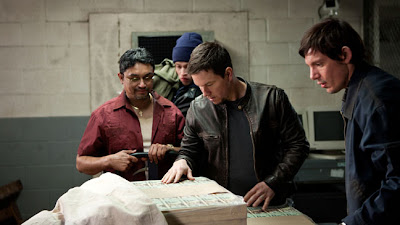
That evening, at the Ramsgate Hotel, I could hardly believe my eyes as I looked around the crowded lounge. So Veidt fights dirty as he tracks down the Nazis – beating up some British officers in his quest – while the meta-cinema of Contraband (mentioned above) clearly shows an affection for a lost Germany.Īfter the completion of one day’s shooting, Powell reflected on the humanist qualities and “league of nations” resonances of the film’s making: These theories are also propagated by Contraband, if in a somewhat undercooked fashion. Britain had to fight dirty, they essentially argued. Michael Powell and Emeric Pressburger (they weren’t quite The Archers yet, but Contraband marked Powell’s second teaming with his émigré screenwriter) would later get into considerable trouble with Churchill on The Life and Death of Colonel Blimp (1943), when they suggested that not all Germans were bad, and that traditional British codes of honour were meaningless in fighting such a ruthless enemy as the Nazis.

#Contraband movie series#
Caligari, 1919), the film’s series of nods to another great of German cinema, Fritz Lang (a secretary in the film is even named Lang), and one may begin to question just what is being propagandised here? Add to these elements Veidt’s clear German accent, his key place in the history of German cinema (as the star of The Cabinet of Dr. And yet, Andersen’s willingness to subvert and avoid all manner of British law enforcement and military personnel in his search for Nazi spies does not exactly send a message of institutional respect. Featuring Conrad Veidt as its main hero (Captain Andersen, a ship’s captain and Danish neutral), the film questions neutrality as a position taken by nations and individuals in the war.

Ostensibly the film serves as an explanation of role of British Contraband Control and the blackout conditions ( Blackout was the name given to the film on its American release) in the early stages of the war. But unlike Hitchcock, the cool observer, Powell was always a hot-headed rebel, and as such his views on war, whether between nations or the sexes, are more unconventional. Beyond this a rating as a minor imitation of Powell’s great rival Hitchcock might be bestowed, even if for little reason other than its concern with spies.

This is perhaps how audiences have most often approached Contraband, as a slight piece of British World War II propaganda with entertaining asides of comedy and romance charming and well-made but little more. In his autobiography Michael Powell described Contraband as “all pure corn, but corn served up by professionals, and it worked” (1). Young Ed: John Seabourne Art Dir: Alfred Junge Mus: Richard AddinsellĬast: Conrad Veidt, Valerie Hobson, Hay Petrie, Esmond Knight, Raymond Lovell, Charles Victor, Henry Wolston, Julian Vedey Source: BFI Prod Co: British National Prod: John Corfield Dir: Michael Powell Scr: Emeric Pressburger, Michael Powell, based on screenplay by Brock Williams, story by Pressburger Phot: F.


 0 kommentar(er)
0 kommentar(er)
